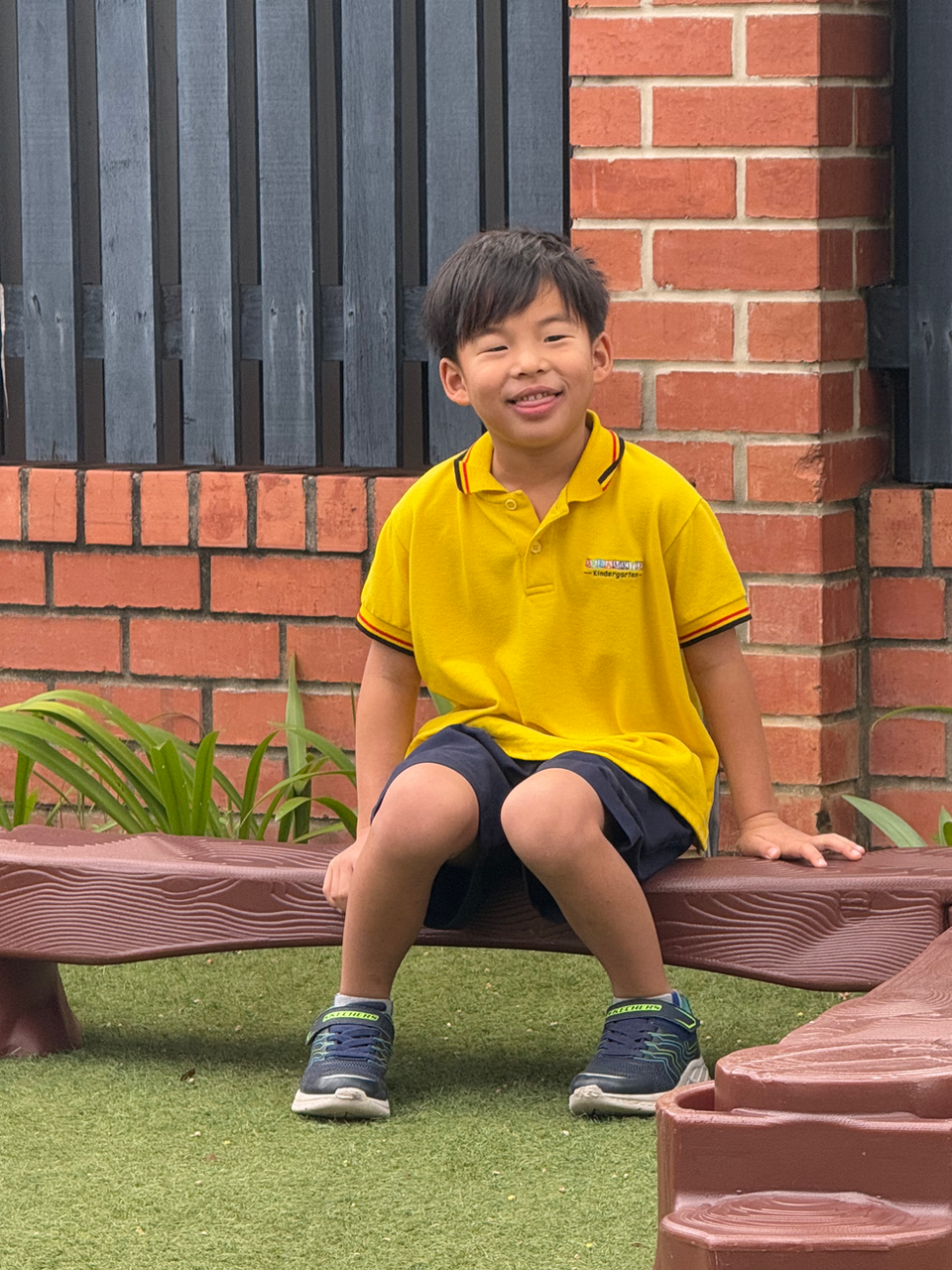
GET IN TOUCH WITH US
Our team is always ready to assist you. Contact us today to learn more about our services or schedule a visit.

We Offer You Value-Added
A KINDERGARTEN YOU CAN TRUST
At Dreamkids, learning is more than academics — it’s a journey of discovery, courage, and connection.
We believe every child is born curious, capable, and full of potential.
Through play, inquiry, and strong values, we help children build the mindset and heart to navigate the world with confidence and joy.
We don’t just prepare children for school — we prepare them for life.

OPENING HOURS
Mon- Fri: 8AM - 5PM
WE ARE LOCATED AT
105 Lor Stangee, S425080
SCHOOL VISIT
THE DREAMKIDS WAY
HOW CHILDREN LEARN WITH HEART & CONFIDENCE
At Dreamkids, every child grows through experiences that build character, courage, and curiosity.
Our 3 core pillars guide everything we do:

Principles-Based Learning
We intentionally nurture lifelong values such as honesty, perseverance, empathy, reflection, and responsibility.
Children learn to solve problems with confidence, express themselves respectfully, and develop strong social-emotional foundations that stay with them long after kindergarten.
We raise children who are grounded, kind, and ready for life.

Risky Play for Courage
Safe, supervised risky play helps children build resilience, strength, and courage.
From climbing, balancing, and outdoor challenges to problem-solving during play, children learn to assess risks, try again after setbacks, and celebrate their own bravery.
We help children grow bolder, stronger, and more capable every day.

Inquiry-Led Exploration
Our inquiries begin with the children — their questions, ideas, curiosities, and observations.
Teachers design rich provocations that spark deeper thinking, creativity, and hands-on discovery across literacy, numeracy, STEM, art, and languages.
We nurture curious thinkers who love learning and exploring.

YOUR TRUSTED
PARTNER IN EDUCATION

OUR PROGRAMMES
At Dreamkids, we provide a nurturing, inquiry-rich environment where children grow with confidence, curiosity, and strong values. Our programmes support every stage of development — from the early years to kindergarten readiness and early intervention support.
EARLY YEARS
(18 Months – 3 Years)
A warm and secure foundation where children explore through play, build early language skills, develop motor abilities, and form trusting relationships with their teachers.
Our Early Years programme focuses on:
-
Sensory exploration
-
Early communication
-
Social-emotional development
-
Motor skills and independence
-
Curiosity-led play
KINDERGARTEN YEARS
( 4 - 6 Years)
A rich, inquiry-led learning journey that prepares children holistically for primary school.
With small class sizes and bilingual teachers, children grow in:
-
Language and literacy
-
Numeracy and problem-solving
-
STEM, coding, and creative thinking
-
Arts, music, and drama
-
Character development and social skills
-
Courage-building through safe risky play
DEVELOPMENT SUPPORT PROGRAMME
For children who benefit from additional guidance in specific developmental areas, our Development Support Programme offers:
-
In-house Occupational Therapy
-
Speech and Language Therapy
-
Small-group Early Intervention sessions
-
Individualised learning goals
-
Parent engagement and progress monitoring
This programme is designed to empower young learners with the skills, confidence, and support they need to thrive in school and daily routines.
ARTS, MUSIC & DRAMA
STEM & CODING
LANGUAGE & LITERACY
(BILINGUALISM)
WHAT PARENTS ARE SAYING
Hear from families who’ve experienced the love, care, and joyful learning at Dreamkids Kindergarten. Their stories reflect our commitment to your child’s happiness and growth.

Roman & Ha (Parents of Maia and Tara)
Over the past 1.5 years, we have seen how much they have grown—not only in their learning but also in their confidence, kindness, and curiosity. And we know this is because of your dedication, love and care for them. You have created a nurturing environment where our children feel safe, valued, and encouraged to do their best. Your patience and encouragement have made a lasting impact, and the values you have taught them will stay with them well beyond the classroom. Our children come home very happy every day and always look forward to go to school each day.
It is very comforting for us as parents to know that our children are in such capable and caring hands. We deeply appreciate the effort and heart you put into guiding them each day.
Thank you for being such an important part of our children’s development
and for inspiring them every day.
★★★★★

Janine (Parent of Castiel)
You helped them shine, and it’s clear they felt so proud of themselves on the stage. We know this took a lot of effort, and it’s a reflection of the passion and commitment you have for each of the children.
Thank you for making Castiel's early years in school so memorable and beautiful. He loves going to school every day, excited to do STEM class and to see you two and all his friends. We are so grateful to you for nurturing his curiosity, confidence, and joy for learning. Dreamkids is truly a very special school, and you have created a space where children can feel valued, loved, and free to be themselves.
★★★★★

Luis (Parent of Ava & Harley)
Both our daughters are having a great experience in Dreamkids, the elder loved the school from day 1 and looks forward every day to going back to school; the younger one was a bit more tricky, but after just a few days she fell in love with the school like her big sister. We are very happy with the progress we have seen on both of them and how the school has helped them to grow, learn and have fun with their friends.
★★★★★
OUR BLOGS
Discover tips and insights on early childhood education and daycare best practices in our blog.

FINDING YOUR WAY TO DREAMKIDS KINDERGARTEN
We’re always happy to welcome families to our cosy, principles-based preschool in the heart of Katong. If you’d like to book a visit, ask a question, or speak to our team, here are the best ways to reach us.
Phone: (65) 8777 8834
Email: info@dreamkids.com.sg
Address: 105 Lor Stangee, Singapore 425080
































